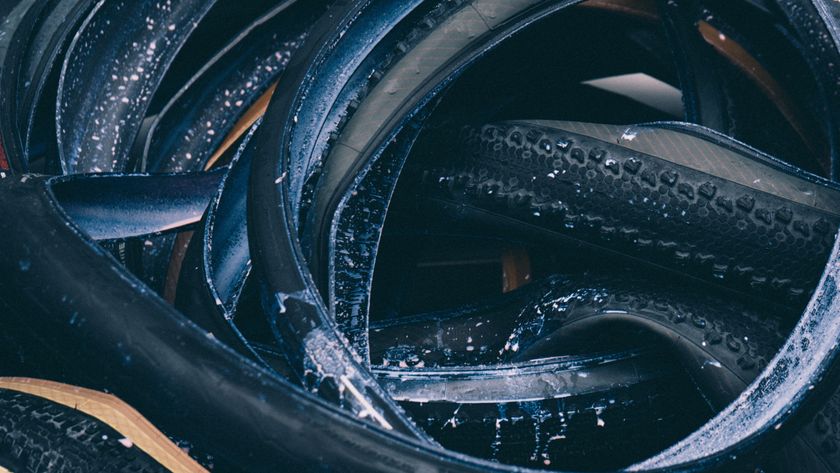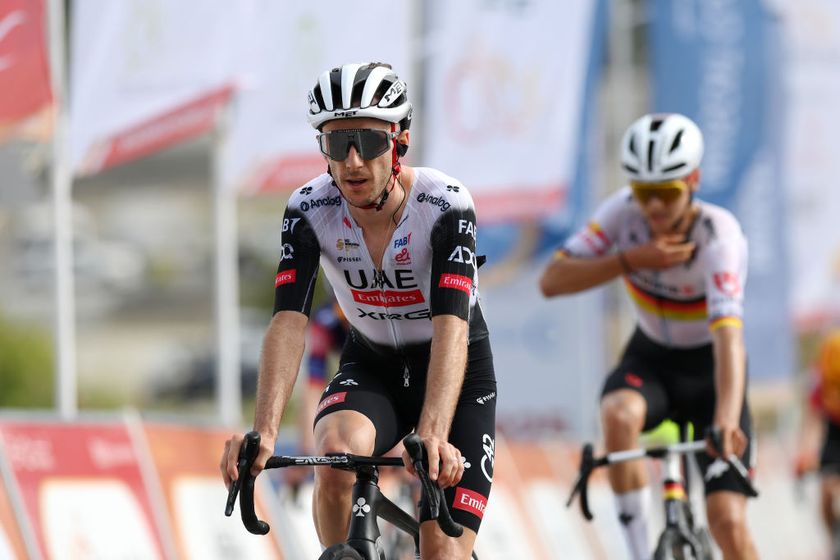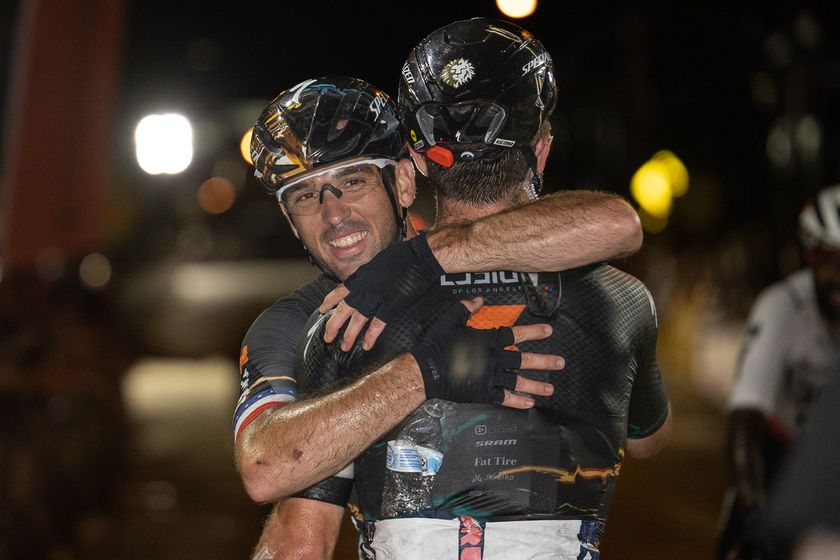Opinion: Michael Ashenden on Omerta 101
Opinion piece from leading anti-doping expert






I ended the call with a sense of despair and resignation that felt like it was drowning me. Yet again, a member of the cycling fraternity had confided to me a shocking anecdote, this time calling into question the integrity of cycling’s overlords. Yet again, despite my pleadings, they refused to share their knowledge with authorities. They were terrified that if ever their name was leaked they would be ostracized from cycling forever.
Report: Ashenden resigns from UCI’s biological passport panel
Ashenden speaks out on leaving Biological Passport panel
Howman: Sophisticated cheat is most dangerous enemy
USADA case against Armstrong could damage UCI, Ashenden says
Ashenden says: McQuaid must now help USADA's investigation
Pound calls for 'truth and reconciliation' for cycling
I don’t care what broadcasters, op-eds, ‘journalists with access’ or the sport administrators themselves have to say about this. I know the cycling fraternity are afraid to speak out, because I witnessed it myself yesterday. Omerta is alive and well in September 2012.
To put it bluntly: where else in the civilised world would we tolerate an environment where citizens were afraid to tell the truth? It was an epiphany for me to contemplate that grotesque realisation. I think omerta’s presence is a truly disgraceful indictment on the stewardship of the sport’s governing body.
However rather than merely criticise, I’m motivated to problem solve and that requires understanding what keeps the omerta in place. Perhaps then its roots can be identified and severed, starving the omerta of its nourishment. In my opinion, three ingredients must co-exist in order to sustain an omerta in cycling.
First, there must be something to hide. Despite the self-serving data bending and associated propaganda to the contrary, I am led to believe that there are pockets of organised, highly sophisticated dopers even within ‘new age’ cycling teams. Personally, I don’t accept that the ‘dark era’ has ended, it has just morphed into a new guise.
Second, the riders must fear reprisal if they share their knowledge with authorities. Whereas USADA’s charge letter indicates the bully was Armstrong, most riders would now recognise his relative impotence given that his modus operandi has been revealed and disgraced. Who else could riders fear? I am told they continue to fear the team hierarchies who have the power to ‘hire & fire’. They hold the rider’s future to ransom and thereby ensure they never ‘spit in the soup’.
Third, for an omerta to thrive the riders must doubt that anything would change even if they did take their information to the authorities. Everyone has witnessed the fate of Floyd Landis, Tyler Hamilton and Jörg Jaksche after they spoke out. I am sure that has left an indelible impression on current riders whose moral compass nags them to tell the truth but who have seen the likely outcome if they did. I think this is a damning legacy with which the current management at UCI will be forever tarnished.
Get The Leadout Newsletter
The latest race content, interviews, features, reviews and expert buying guides, direct to your inbox!
If any one of those three ingredients were permanently removed from the cycling landscape, I think the omerta would begin to erode and eventually crumble. If there was nothing to hide, why stay quiet? If there would be no reprisals, why not speak out? If speaking out did change things, why wouldn’t a few noble souls come forward?
So I wholeheartedly support calls by USADA and Dick Pound to convene a ‘Truth and Reconciliation Commission’ (TRC) for cycling. Someone, somewhere, needs to crack cycling’s omerta open, Dubin-esque style. It is not a question of survival – of course cycling will continue to exist even if there is no TRC. It will continue to exist just like it is today.
At the same time, I have grave doubts that Pat McQuaid’s amnesty would have the necessary credibility if it were convened under the ministership of the UCI. Cycling simply cannot be seen to be investigating itself on this exquisitely sensitive matter. Nevertheless, the UCI’s participation should be welcomed, as intuition tells me they would have some cathartic stories to tell.
The seeds of hope
However regardless of the forum and who convenes it, we would do well to cast our eyes toward the horizon and contemplate a post-TRC environment. The seeds of hope and reformation germinated and nourished by a TRC will quickly die if they are cast upon a barren landscape.
For example, a post-TRC future will no doubt include many confessed dopers as well as their confessed facilitators, lest the roads be half empty and some team cars driverless. That situation must be managed. A scenario where the same actors are thrown back into the same milieu without meaningful support via structural change is rife for exploitation, in the same way that the 1999 Tour de France was supposedly a redemption post-Festina but was instead hoodwinked and hijacked by a team of cynical conspirators.
Therefore, the TRC would address my first ingredient of omerta (i.e., there will be no substantial secrets left to hide if the TRC succeeds in providing an open forum), but what would stop the situation from reinfesting cycling a few years down the track? Another generation of secrets would have flourished in the meantime. Moreover, in the absence of structural change, the last two ingredients of omerta will be carried forward after the TRC has closed.
Specifically, individuals would still fear reprisal for disclosing their knowledge of wrongdoing, and riders would still be cynical that anything would change even if they did volunteer that information. The TRC is a first and vital step, but definitely not the last.
I think those two latter concerns can be expunged with a single solution: an investigatory unitset up specifically to receive and evaluate non-analytical evidence from within the cycling fraternity. It must also be imbued with the capacity to initiate sanctions on both riders as well as team hierarchies who fail to reform post-TRC.
One need only look to the USADA to see an exemplary example of how an investigative unit could be managed. Whereas the UCI might be anxious to house the unit beneath their antidoping commission and thereby maintain some level of control, I believe the inherent conflict of interest with the UCI’s desire to promote and globalize their sport is insurmountable.
Besides, there is already a template on which to base an ex-UCI investigatory unit. Currently, cycling’s Athlete Biological Passport is managed by an independent entity (the Lausanne APMU) who receive UCI’s imprimatur to execute those activities on its behalf. The teams, riders and race organizers currently outlay approximately 85% of the running costs for the Passport, even though it is still ostensibly seen to be ‘run’ by the UCI. I see no reason not to adopt a similar model for the funding and management of cycling’s investigatory unit.
Perhaps in the future, after cycling’s secrets have been laid bare during a reconciliation forum, after an investigatory unit has been set up to receive and investigate rider’s concerns, and after that unit has demonstrated itself to be morally and legally capable, perhaps then we can declare the omerta over.


